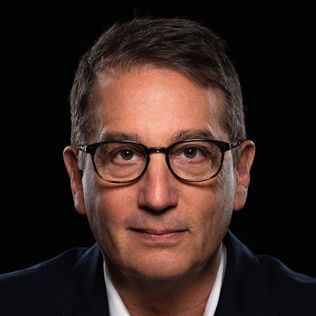How to Empower Your Dental Team (Using Radical Trust)
Oct 09, 2024Do you trust people? Do you trust the people who work with you and for you? Without trust, it erodes any relationship—whether it's a romantic relationship, a marriage, a family relationship, a business relationship, or a relationship with your team or your patients.
I consider myself a very trustworthy person. I try not to lie, and I strive to be ethical. I'm not perfect, but I make an effort to uphold these values daily. I always try to tell patients the truth in a gentle way, as long as it's not going to harm them or make them feel bad. And because of that, whenever someone says, "I don't trust you," it baffles me a bit. But I understand why they don’t trust me. They don’t trust me because they themselves are not trustworthy.
Over the years, I've had many employees and patients—thousands, actually—who didn’t always trust me. And I’ve laughed to myself, thinking, "They don’t trust me, and I’m telling them the truth. Who are they going to trust if they can’t make the right decision about whom to trust?"
Our practice has five core values, and the first is integrity. We strive to hire people with high integrity. While there’s no specific test for integrity, it becomes apparent over time. You get a good sense of it during interviews, and we use cultural assessments in our practice. Today, I have a phenomenal team. I love everyone in our office. I can't say that was always the case over the past 40 years, but we’ve gotten better at hiring the right people. Our culture is great, and culture is one of the most important factors in training others.
We don’t have a formal "culture training" that people go through when they start. Instead, they absorb it by working here every day. So, when someone new joins our practice, the culture is already present.
Stu Leonard’s grocery chain is probably the largest independently owned in the U.S. I know Stu Leonard Jr. and met his father, Stu Leonard Sr., who passed away a few years ago. When you enter their office, there’s a big sign that reads, "Rule number one: The customer is always right. Rule number two: Please reread rule number one." The people there are always so kind, and the company is consistently voted one of the top places to work by Forbes magazine.
When I visit, the staff is incredibly helpful. I once asked Stu Leonard about their training program. He said, "We show them a 20-minute video my dad made 30 years ago." I asked, "And that’s it?" He replied, "No, then they start working." Similarly, in our practice, we have a manual and a training program, but how do they really learn? They learn by being in the office.
I tell new hires that it takes about a year to become minimally competent because that's how long it takes to truly understand our culture. Sure, they can learn where to put a pen or a book, but grasping the culture takes time.
So, what am I saying? We have an office built on trust and filled with integrity. I trust the people who work with us. I trust my team members. For example, I trust Taylor to handle decisions, like dealing with a patient’s complaint about a bill. She doesn't need to check with me. She can take care of it on the spot.
When someone at the front desk can resolve an issue immediately, how does that make you feel? It used to be a joke—buying a car, negotiating a price, and then the salesperson would say, "Let me check with my manager." Who were they really talking to in the back? Probably having a coffee break.
But when a hotel receptionist upgrades your room on the spot or fixes an issue without checking with their manager, it feels empowering. Staff members who can make decisions without constantly seeking approval are empowered, and when they’re empowered, ambiguity and friction decrease. This makes interactions smoother, whether it’s with a patient, a hotel guest, or a customer anywhere.
Wasting time creating unnecessary friction is costly and stressful. It’s much better, and a great form of marketing, if the person at the front desk can say, "No problem, I’ll take care of this."
For example, if a patient has a complaint, the staff can immediately offer a discount, or follow whatever protocol we have in place. We have protocols for everything we do in our practice, which we've discussed in previous videos. These protocols guide us, but they’re flexible. There’s no single right way to do things.
In fact, as Will Guidara mentions in his book, Unreasonable Hospitality, "One size fits one." Customization is key. You achieve this by hiring people with the right values, training them, and then empowering them to do their job well.
I try to acknowledge the people who work for us daily. They’re here for a paycheck, but they’re also here for something bigger—to be part of a great workplace where they feel trusted and valued. And when they feel trusted, they trust me, and patients feel that, too.
When you trust others, they trust you more, and life becomes better. If I walk around thinking everyone is out to get me, that’s what I’ll experience. But when I trust that things will be okay, they usually are.
Just a few thoughts on trust, trusting your employees, and empowering them to be trustworthy. Have a great day, everyone. Remember, be the gift.



